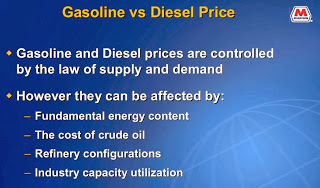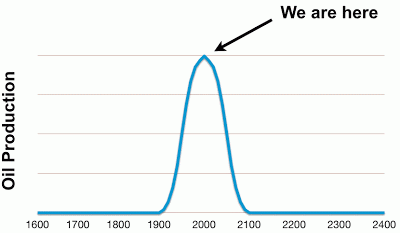 |
| Audi A3 e-tron electric car |
Audi has had on-again-off-again plans for electric vehicles. They also, like parent company Volkswagen, really like turbo-charged diesel (TDI) engines. Both Audi and VW claim that TDI diesel engines produce dramatically less emissions than regular diesel. Given that traditional Diesel engines produce the larger particulate matter that’s implicated in both cardiovascular disease and greenhouse gas problems, anything of the “clean diesel” variety is a great idea. To that end Audi just sent out a press release claiming that over half of Americans think the US Government has unfairly placed bets on electric vehicles over clean diesel.
Didn’t the Volkswagen Group recently announce the intention to become a leader in electric vehicles? Why, yes, they did.
Just how committed is VW/Audi to electric vehicles remains to be seen. Both have built some interesting concept cars, but have yet to bring anything to market, yet. VW was part of the coalition pushing for the SAE Combo Plug for fast charging![]() , where the primary effect of that move was to delay fast charging adoption by undermining the credibility of CHAdeMO.
, where the primary effect of that move was to delay fast charging adoption by undermining the credibility of CHAdeMO.
The high-level takeaways that Audi wants us to grok are:-
- Survey conducted by Harris Interactive among over 1,600 American drivers to gain insight into clean diesel perception and adoption
- 66% of drivers think the government should offer a tax incentive on clean diesel vehicles
- 59% of 18-34 year old drivers said that if the cost of diesel fuel was on par with gasoline, they would purchase a diesel-powered vehicle
Sounds like a slam-dunk eh? American’s don’t want those stinky electrics, they want Clean Diesel. If that’s true it shows that American’s aren’t understanding the reality, and in any case Audi’s press release has some problems with factuality.
Why should Electric vehicles have preference over Clean Diesel? The reason only partly has to do with environmental issues like air quality and greenhouse gas emissions. If we take as granted that Clean Diesel really is Clean (cleaner than traditional diesel, and cleaner than gasoline) there is another huge issue. Namely, oil supplies and hydraulic fracturing.
The world’s oil fields are past the peak of production for conventional oil sources. That is, we are past the peak point of Peak Oil. It doesn’t really matter the exact date of the Peak, but that the Peak has occurred already. Turning to techniques like hydraulic fracturing is a symptom of having gone past Peak Oil.
Hydraulic Fracturing is a more expensive way to mine fossil oil — and it’s implicated in lots of negative environmental consequences.
The point for this discussion is that we prefer Electrics over ANYTHING powered by fossil fuels because of Peak Oil issues. If a significant number of other drivers adopt electric vehicles it will change the curve of fossil fuel use and extend the availability of fossil fuels and our society will avoid the crash that would otherwise occur.
And yes it also means that the source of electricity must also shift away from fossil fuels.
Fossil Oil consumption also carries other issues such as the geopolitical horrors wrecking societies around the planet because of Western Powers’ dependence on fossil oil.
What Audi wants for us is to adopt “Clean Diesel” in a big way, and while that might be good for the environment it does nothing at all to fix the Peak Oil issue.
Of course, if the US adopted Clean Diesel in a big way, the VW Group’s investment in developing Clean Diesel TDI engines would pay off in a big way. Hence, Audi/VW is not an unbiased bystander, but an organization that stands to gain a lot of Clean Diesel is adopted.
The press release says “survey results show that 65% of American drivers would be in support of lawmakers’ efforts to make diesel more accessible to the American public; and 66% of drivers think the government should offer a tax incentive on clean diesel vehicles.” It quotes Scott Keogh, President, Audi of America saying “we argue that diesel needs an even playing field set by state and federal governments,” and “If you take away the disincentives that state and federal taxation policy create, we potentially could see a big uptick in clean diesel vehicles sales.”

Level playing field … offering a tax incentive for Clean Diesel … disincentives …. many would buy Diesel if fuel costs were the same …
I found this slide deck from Marathon Oil in 2008![]() giving some interesting claims.
giving some interesting claims.
Just as expected – the price for Gasoline and Diesel is set by a variety of factors that do not include government policies. Supply, Demand, fundamental energy content, price of crude oil, etc. The slide deck goes on to talk about market conditions such as they generally produce Diesel for heating use during the Winter. Hence, oil refineries typically change the blends they produce throughout the year to suit demand from customers.
Audi’s press release argues Clean Diesel vehicles should get similar tax incentives for other “alternative fuel vehicles.” But.. that’s a ridiculous idea. Diesel is hardly an “Alternative Fuel”. It comes from the same fossil fuel source as gasoline or traditional diesel. Diesel is simply another of the distillates of crude oil. If a refinery is going to make Diesel, it also makes Gasoline.
“I do believe that diesel owners should be included in alternative energy tax incentives. Most diesel owners buy the car for the increased gas mileage, and we deserve to be rewarded for our change in behavior in using an alternate fuel just as hybrid drivers are,” said Stephanie Lewis, Audi TDI clean diesel owner since 2010. BZZZZT!!!!!! No, you are not driving an “alternate fuel” vehicle, and do not deserve any special break.
Another incentive is HOV Lane access – with Audi claiming Clean Diesel vehicle owners should also get HOV access. Their rationale? “HOV lanes are made for long-distance driving, better suited to clean diesel vehicles.” But this is bogus. HOV lanes serve two purposes: a) reducing traffic congestion as a byproduct of more persons per car, b) reducing air pollution as a byproduct of fewer vehicle miles driven.
I have mixed feelings about granting electric vehicle drivers HOV lane access because it does nothing to reduce traffic congestion. Here we see an unwanted byproduct of equating HOV access to be a perk for driving a cleaner vehicle. It has lost the original meaning of reducing traffic congestion.
Just because Clean Diesel is cleaner traditional diesel, does that make it: An Alternative? Something which the Government should put big support behind?
My opinion is that Clean Diesel deserves no more support than Gasoline. Diesel fuel is part of the mainstream of fuel consumption, and it is a major contributor to the problems we experience due to fossil fuel consumption. Maybe just maybe there’s a policy issue making Diesel more expensive than gasoline, and maybe the Government could fix that. But there is no conceivable rationale for granting Clean Diesel vehicle drivers any special anything.
- Highway design could decrease death and injury risk, if “we” chose smarter designs - March 28, 2015
- GM really did trademark “range anxiety”, only later to abandon that mark - March 25, 2015
- US Government releases new regulations on hydraulic fracturing, that some call “toothless” - March 20, 2015
- Tesla Motors magic pill to solve range anxiety doesn’t quite instill range confidence - March 19, 2015
- Update on Galena IL oil train – 21 cars involved, which were the supposedly safer CP1232 design - March 7, 2015
- Another oil bomb train – why are they shipping crude oil by train? – Symptoms of fossil fuel addiction - March 6, 2015
- Chevron relinquishes fracking in Romania, as part of broader pull-out from Eastern European fracking operations - February 22, 2015
- Answer anti- electric car articles with truth and pride – truth outshines all distortions - February 19, 2015
- Apple taking big risk on developing a car? Please, Apple, don’t go there! - February 16, 2015
- Toyota, Nissan, Honda working on Japanese fuel cell infrastructure for Japanese government - February 12, 2015












